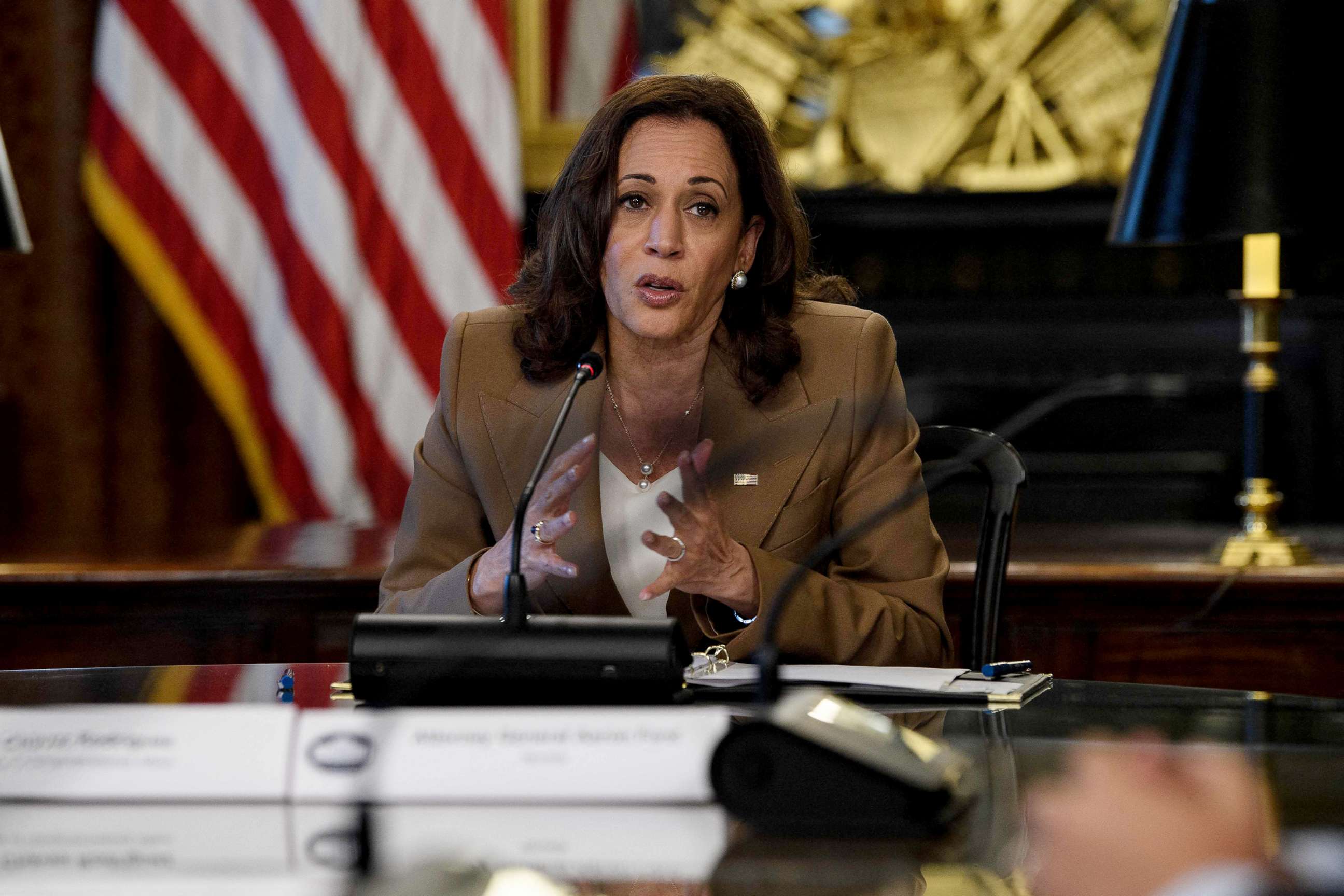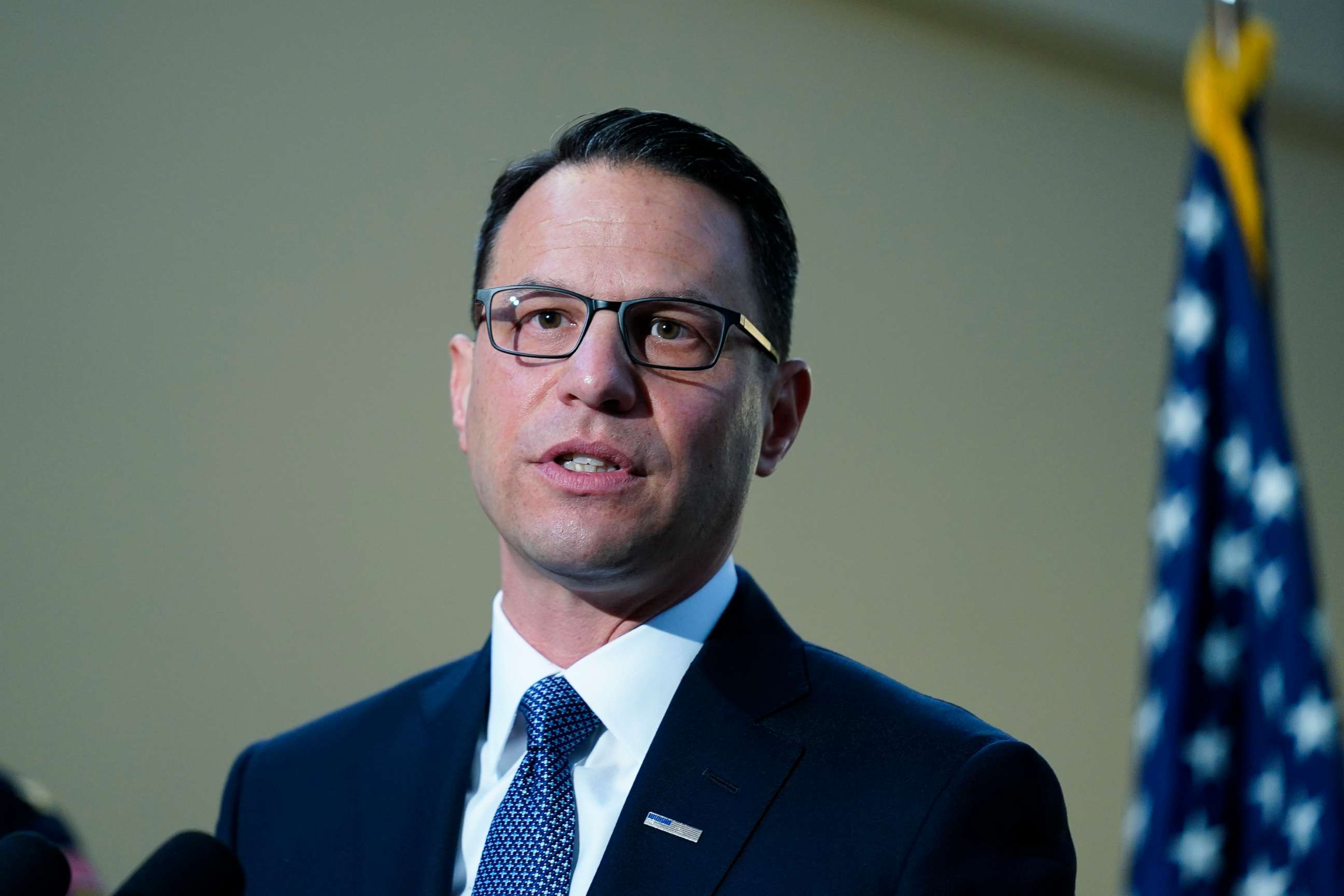Trumpism tempts Democrats as well as Republicans in next primaries up: The Note
Trying to pick one's opponent isn't new but this year's stakes may be different.
The TAKE with Rick Klein
Some of the most Donald Trump-friendly candidates on the ballot have some unusual allies -- at a most unusual moment.
The last major multi-state voting day until August will put a high-risk strategy on display. Primaries in Colorado and Illinois on Tuesday are the latest races where Democratic-aligned groups are spending heavily to boost the candidacies of far-right Republicans under the assumption that they will be easier to defeat in November.
The candidates are being boosted under the guise of attacks that all involved -- including the candidates themselves -- think actually helps them in GOP primaries.
State Rep. Ron Hanks, an election-denying Senate candidate, is labeled in ads funded by Democrats as "too conservative for Colorado." That same line is being applied to Greg Lopez, a GOP gubernatorial candidate who has said he would likely sign an abortion ban in Colorado if the legislature passes one.
State Sen. Darren Bailey, who was just endorsed by former President Trump in his race for governor, is likewise called "too conservative for Illinois" in ads being run by Democratic groups. Similar spending already may have helped Doug Mastriano in his quest for the Republican gubernatorial nomination in Pennsylvania.
Trying to choose one's own opponent is not a new trick in politics. Some Democratic strategists argue that it's a smart way to try to win elections and that defining rivals early, particularly in a Trump-dominated party, is the best course.
But between challenges to democracy highlighted by the House's Jan. 6 committee and the future of abortion rights thrown into question by the Supreme Court striking down Roe v. Wade, the stakes of this year's midterm elections might be different. That, at least, is Democrats' hope -- even as they lend something of a hand to candidates loyal to Trump.

The RUNDOWN with Averi Harper
Despite the advanced notice of Roe's imminent demise, via the leak last month of the Supreme Court's decision, Democrats are still plotting their next steps in the aftermath of the ruling, which was handed down Friday.
House Speaker Nancy Pelosi, D-Calif., announced in a letter to fellow House Democrats that her conference would "explore" legislation aimed at reinforcing the right of Americans to interstate travel, codifying the right to an abortion and protecting women's personal data in reproductive apps to prevent that data from being used to penalize women for seeking abortions out of state.
"While this extremist Supreme Court works to punish and control the American people, Democrats must continue our fight to expand freedom in America," Pelosi wrote.
In an interview with CNN on Monday, Vice President Kamala Harris emphasized that the administration would work to ensure that women have access to FDA-approved medical abortion. Her comments follow statements from Attorney General Merrick Garland, who asserted Friday that states can't ban such medication.
"We're do everything within our power as an administration through the executive branch to ensure that women have access to the medication they need," Harris said.

Still, progressives are calling for bolder action and some have expressed dissatisfaction with the White House's response. New York Rep. Alexandria Ocasio-Cortez tweeted a set of specific actions that could be taken, including expanding the Supreme Court, opening abortion clinics on federal lands and repealing the Hyde Amendment which prohibits federal money from being used to fund abortions -- though the likelihood of those ideas coming to fruition is slim.
Washington Rep. Pramila Jayapal, the chair of the Congressional Progressive Caucus, seemed to imply the White House should have been prepared with an action plan sooner.
"He [Biden] made a strong statement the day of. I would have liked to see some more specific actions rolled out," Jayapal told Politico on Monday. "We all knew this was coming."
The TIP with Alisa Wiersema
The 2022 landscape of battleground states is evolving into dual tracks of importance post-Roe's overturning. In addition to underscoring the future of the Senate majority, several states' gubernatorial races are now also at the forefront of the battle over abortion rights given that governors would in many cases be able to either enforce or revoke states' existing abortion laws.
Tuesday's primary elections will highlight developments in Illinois and Colorado -- two states that are among the few areas permitting abortion access in their respective regions. The final weekend of campaigning in New York's gubernatorial race also featured a heavy emphasis by candidates on both sides of the aisle against a backdrop of mass protests over the Supreme Court's ruling.
Pennsylvania is already seen as Democrats' best Senate pickup opportunity this year; and now the state is becoming an abortion access battleground in its gubernatorial contest. Democratic candidate and sitting state Attorney General Josh Shapiro is campaigning on a promise to veto anti-abortion legislation proposed by the Republican legislature, if elected. Across the aisle, Republican Doug Mastriano is positioned as one of the toughest opponents of abortion access -- the state senator has publicly said he does not support exceptions for abortion and would criminalize abortions if he takes the state's top executive role.
Meanwhile, state-level legal complications are already stemming from the Supreme Court's decision and making their way onto the campaign trail. In Michigan -- where incumbent Democratic Gov. Gretchen Whitmer is fending off a crowded field of Republican challengers -- a 1931 law is causing confusion about the state's current abortion access.
Whitmer is seeking to have the Michigan Supreme Court strike down the nearly 100-year-old law criminalizing abortions that are performed outside of situations to save a mother's life, arguing that it goes against the state's constitution.

NUMBER OF THE DAY, powered by FiveThirtyEight
22. That's the number of key Republican primaries to watch in Colorado, Illinois, Mississippi, New York, Oklahoma and Utah on Tuesday, along with a special election in Nebraska. And as FiveThirtyEight's Geoffrey Skelley and Nathaniel Rakich write, Trump's influence is once again on the ballot. But in addition to that well-worn storyline is Democratic involvement in GOP primaries. One thing Democrats have tried this cycle is to elevate the candidacies of more extreme right-wing candidates in the hopes that they'll be easier to defeat in the general election. Will that pay off in states like Colorado? Join us Tuesday as we live-blog the results at FiveThirtyEight.
The PLAYLIST
ABC News' "Start Here" Podcast. "Start Here" begins Tuesday morning with the Supreme Court ruling on a case involving a praying football coach and why critics say it's another blow to the separation of church and state. ABC's Devin Dwyer leads us off. Then, a consumer health tech expert breaks down concerns women have about the security of period tracking apps after Roe v. Wade was overturned. And, ABC's MaryAlice Parks joins us from the G7 summit as world leaders make new commitments to Ukraine. http://apple.co/2HPocUL
WHAT YOU NEED TO KNOW TODAY
- The House select committee investigating the Jan. 6 insurrection will hold its next public hearing, beginning at 1 p.m. ET.
- • President Joe Biden continues his European trip for the Group of Seven nations summit. First he will meet with German Chancellor Olaf Scholz, French President Emmanuel Macron and U.K. Prime Minister Boris Johnson at 4 a.m. ET before delivering remarks at a session focused on “Multilateral and Digital Order.” Afterward, he will travel to Spain for a dinner at 2 p.m. ET with King Felipe VI and Queen Letizia.
- First lady Jill Biden will meet with Ukrainian refugees in Spain at 6 a.m. ET along with Queen Letizia.
- Polls for primary elections open in South Carolina at 7 a.m. ET, in New York at 6 a.m. ET, in Illinois at 7 a.m ET, in Colorado at 9 a.m. ET, in Utah at 9 a.m. ET, in Nebraska at 9 a.m. ET and in Mississippi at 8 a.m. ET.
- Polls for primary elections close in South Carolina at 7 p.m. ET, in New York at 9 p.m. ET, in Illinois at 8 p.m. ET, in Colorado at 9 p.m. ET, in Utah at 10 p.m. ET, in Nebraska at 9 p.m. ET and in Mississippi at 8 p.m. ET
Download the ABC News app and select "The Note" as an item of interest to receive the day's sharpest political analysis.
The Note is a daily ABC News feature that highlights the day's top stories in politics. Please check back on Wednesday for the latest.




